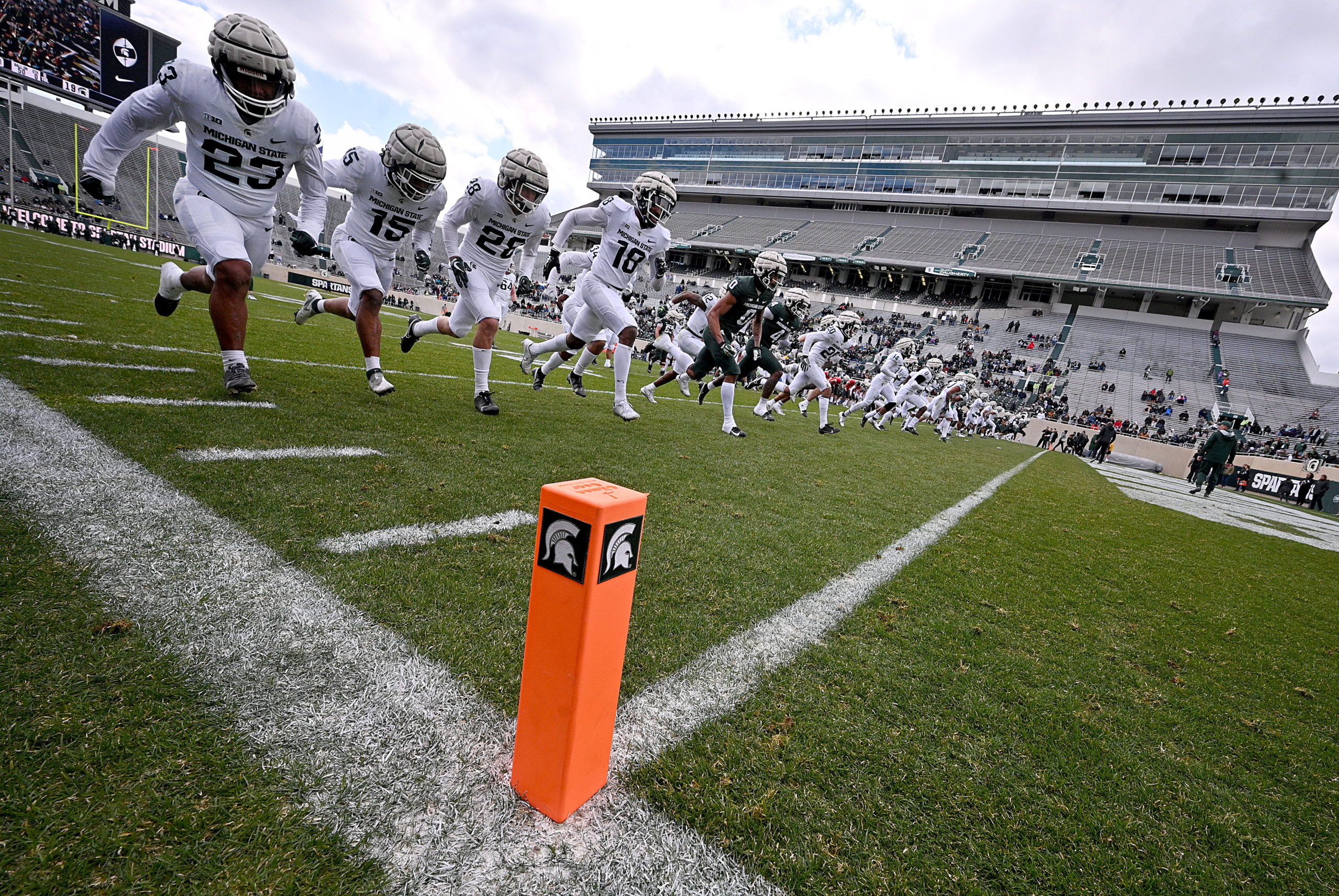Over the past six months, collectives have come to dominate the NIL landscape.
The groups of boosters, donors, local alumni, and businesses organizing deals for players have been lauded by some as the future of NIL. They’ve been criticized by others as a disguise for “pay-for-play.” Even the NCAA has attacked them.
But now, a new type of collective is emerging — ones run by the athletes themselves — that might be better for athletes from both a revenue and compliance perspective.
On Tuesday, Michigan State football players announced on social media that they had launched the “East Lansing NIL Club.”
The following day, Auburn football players announced they, too, had created a collective called the “Plains NIL Club.” Both announcements included most of the same language.
For both groups, fans can buy passes to receive exclusive content, communicate with players, and go to events.
Kennyhertz Perry attorney and NIL expert Mit Winter, who noted the trend on Twitter, told Front Office Sports he believes it will spread.
“It will likely allow the players to keep more of the revenue generated” than booster-led collectives, Winter said. “It also eliminates the issue of booster involvement in NIL deals, at least for the types of deals that the player-led collectives will be putting together.”
Both NIL club announcements noted that NIL has “captured national headlines about how it will impact recruiting and the transfer portal. As players dedicated to our team and winning a national championship, we aren’t interested in the noise.”
“We believe there is a better way.”







![[Subscription Customers Only] Jun 15, 2025; Seattle, Washington, USA; Botafogo owner John Textor inside the stadium before the match during a group stage match of the 2025 FIFA Club World Cup at Lumen Field.](https://frontofficesports.com/wp-content/uploads/2026/02/USATSI_26465842_168416386_lowres-scaled.jpg?quality=100&w=1024)
![[Subscription Customers Only] Jul 13, 2025; East Rutherford, New Jersey, USA; Chelsea FC midfielder Cole Palmer (10) celebrates winning the final of the 2025 FIFA Club World Cup at MetLife Stadium](https://frontofficesports.com/wp-content/uploads/2026/02/USATSI_26636703-scaled-e1770932227605.jpg?quality=100&w=1024)








